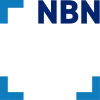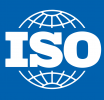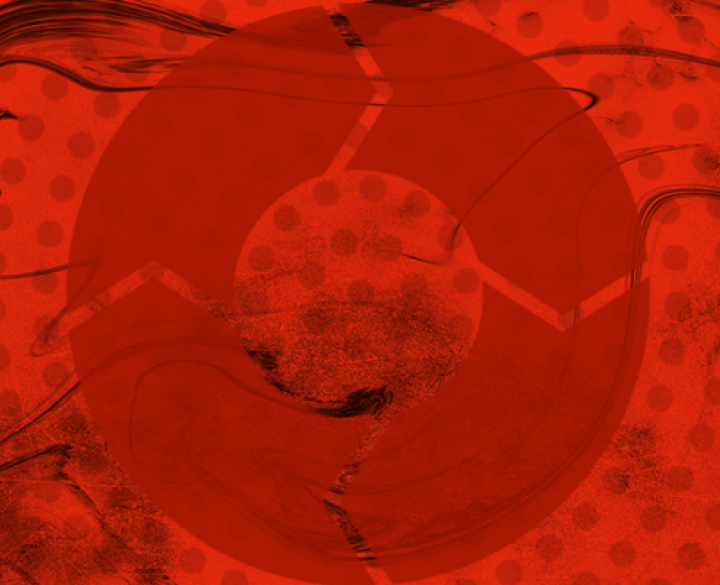NBN/I323 - Circular economy
Both CEN/TC 473 and ISO/TC 323 (see below) are mirrored by NBN/I323 Circular economy
Which circular economy standards committees are there ?
- The international standards committee ISO/TC323 and the European standards committee CEN/TC 473 are developing standards that help organizations adhere to the circular economy and comply with European regulations.
- The Belgian committee NBN/I323 closely follows and contributes to the developments of both ISO/TC 323 and CEN/TC 473.
- Anyone in Belgium can join. NBN/I323 meets several times a year.
more information about NBN/I323

CEN/TC 473 - Circular economy
Scope
Standardization in the field of Circular Economy to develop horizontal standards relating to European specific prerequisites, legislation, and policy. The standards aim to provide recommendations, requirements, methodologies and tools to support and measure transition towards a circular economy. The deliverables aim to unify international and European standardization while contributing to a sustainable green economy.
Excluded:
- Aspects of Circular Economy already covered by existing committees or future standardization falling within specific sectors, product groups, material, or data standardization.
- Aspects concerning standardization on Eco-design and Digital Product Passport.

ISO/TC 323 - Circular economy
Within the Technical Committee ISO/TC 323 - Circular economy, five Working Groups (WGs) are addressing standards regarding circular economy that can have an impact on the textile industry.
General scope of ISO/TC 323
Standardization in the field of Circular Economy to develop frameworks, guidance, supporting tools and requirements for the implementation of activities of all involved organizations, to maximize the contribution to Sustainable Development.
Excluded from this scope are all aspects of Circular Economy already covered by existing committees.
Note: In parallel, ISO TC 323 works in cooperation with existing committees on subjects that may support Circular Economy.

ISO/TC 323/WG 1
ISO/TC 323/WG 1 - Terminology, principles, frameworks and management system standard is developing a standard with terminology that will create a common understanding and enable uniform communication regarding Circular aspects.
This is of high importance to avoid greenwashing.
Working draft: ISO 59004 – WD3 – “Circular Economy – Terminology, Principles and Framework for implementation”
Scope of the 3rd working draft
This document defines key terminology, establishes circular economy principles, and provides a framework for implementation and guidance regarding areas of action. It is intended to be used by organizations, either private or public, individually, or collectively, regardless of type, size, location, jurisdiction, or position within a specific value chain or value network, that are seeking to understand and contribute to a circular economy while aiming for sustainable development.
ISO/TC 323/WG 2
ISO/TC 323/WG 2 - Practical approaches to develop and implement Circular Economy - puts out frameworks on circular economy.
The working draft under development ISO/WD 59010.2 – “Circular economy — Guidelines on business models and value chains" will create an understanding on how circular economy works. One of the principles is that the circular value chain is transformed in a circular network where companies and end-users interact with each other to create a circular economy.
Scope
This document provides guidelines for an organization seeking to transition their business models and value networks from linear to circular ones.
This document applies to any organization dealing in a solution (product or service) regardless of its size, sector or region.
ISO/TC 323/WG 3
ISO/TC 323/WG 3 - Measuring and assessing circularity - is working on methods on how to calculate the circularity of a product or service.
The current committee draft (CD) is ISO/CD 59020.2 – “Circular economy — Measuring circularity framework”.
Scope:
This document specifies a framework for organizations to measure and assess circularity, enabling those organizations to contribute to sustainable development.
The framework is applicable to multiple levels of an economic system, ranging from regional, inter-organizational, organizational to the product level. The framework provides guidance on how the circularity performance of an economic system can be objectively, comprehensively and reliably measured and assessed using circularity indicators and complementary methods. The framework can be used to determine the effectiveness of circular actions and the claims made by public and private organizations.
The purpose of the standard is to assist organizations in the collection of necessary information to enable circular economic practices that minimize resource use and/or enable a circular flow of resources and contribute to sustainable development. The framework can account for consideration of social, environmental and economic impacts when assessing circularity performance by allowing input from a variety of complementary methods.
ISO/TC 323/WG 4
ISO/TC 323/WG 4 – “Circular Economy in practice: experience feedback” is developing two technical reports.
ISO/CD TR 59031 – “Circular economy – Performance-based approach – Analysis of cases studies”
Scope
This TR provides an analysis of cases for the implementation of specific aspects of circular economy in organizations, whatever their status can be. It specifically focuses on performance-based approaches such as functional economy, service economy, product-service systems (PSS), Product as a Service (PaaS) and other performance-based approaches
This technical report mainly describes a selection of use case of operational implementation of such performance-based approaches observed in different organizations. It stresses the challenging context faced by concerned organizations and that lead them to change their economic & business models. It depicts cultural, organizational and industrial change induced by this move of their business model toward a performance-based approach. It emphasizes to what extent the total economic value increases and how this raise is converted in revenue streams for the concerned organizations.
Therefore, this TR does not cover the implantation of any circular economy domain of actions (eco-design, recycling; responsible purchase policy etc.) but focuses on the systemic level of economic models based on the contracting on given aspects of performance.
Other specific aspects of the implantation of other circular economy domains of action could be addressed in other technical reports of this Working Group on specific issues of circular economy.
This technical report is aligned with the definitions, terminology and principles (including operational ones) for circular economy developed by ISO/TC 323/WG 1- Framework, principles, terminology, and management system standard. Mutual discussions with the latter on the needed definitions for the development of this TR ensured this alignment.
ISO/DTR 59032.2 – “Circular economy - Review of business model implementation”
This document is in its very early stages.
ISO/TC 323/WG 5
WG 5 is working on a product circular datasheet framework. This template will serve as a basis for sector specific product circular datasheets.
ISO/AWI 59040 – “Circular Economy — Product Circularity Data Sheet”
Scope
The document provides a general methodology for defining, implementing, operating, monitoring, reviewing, maintaining and improving circular economy aspects when acquiring or supplying products, and through the usage of a Product Circularity Data Sheet.
This general methodology contains then a set of requirements that need to be established by an organization aiming to use the concerned data sheet throughout supply chain management processes, including the secure reporting and exchanging of information. The document also provides recommendations for the definition and sharing of a Product Circularity Data Sheet, considering the type, content and format of information to be provided to support the implementation of cost-effective circular business models for products. These requirements and recommendations are intended to be applicable to all organizations, regardless of type, size and nature and implement a qualitative approach for business-to-business data exchange to be inclusive with small and medium businesses/enterprises and to protect confidential information.
ISO TC 38 textile WG 35
This sector specific WG is currently working on a definitions standard that combines terminology used to claim environmental aspects.It also includes terminology and the definitions on circular aspects.
prEN ISO 5157 (WI=00248743) “Textiles - Environmental aspects - Vocabulary”
CEN TC 248 WG 39 - “Circular Economy for textile products and the textile chain” develops standards for the textile industry to define circular aspects on textiles.
WI=00248731 Circular Textiles Chain – Requirements and categories has been approved. This is the Dutch NTA 8195 - “Circular textile - Requirements and categories” that will be further developed.
Scope
This NTA describes categories of circular textile products. It sets requirements for input flows and the circular strategies applied in order to be able to report on categories of circular textile products. This document applies to textile fibres and textile products. It does not apply to leather and fur.
The experts decided that it would be best that the terminology from this work item is added to the standard under development in ISO TC 38 WG35. The Vienna agreement was approved on this work item so that this standard will be further developed as an EN ISO. Working group 39 discussed all terms and formulated a proposal to taken up in the ISO DIS 5157 - “Textiles - Environmental aspects — Vocabulary”.
If you are interested to follow up this standard development, join the Mirror Committee CENTEXBEL/B Circular Economy & Sustainability for textile & plastics products by contacting Karin Eufinger and/or Edwin Maes.
Joint ISO/TC 207/SC 5 - ISO/TC 323 WG: Secondary materials
ISO/TC 323 has a joint committee working on secondary materials: ISO/TC 207/SC 5/JWG 14




